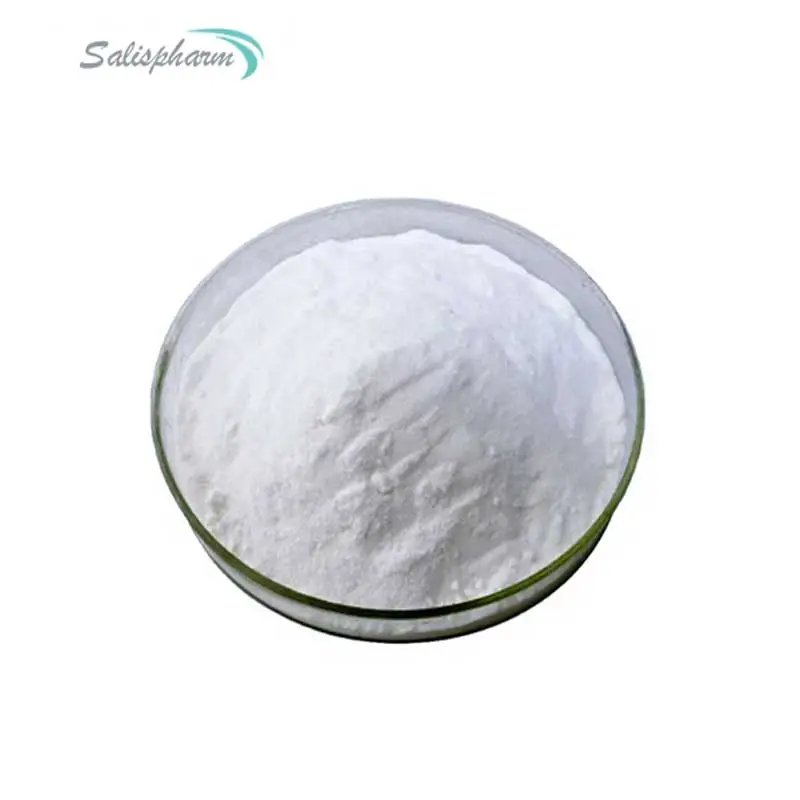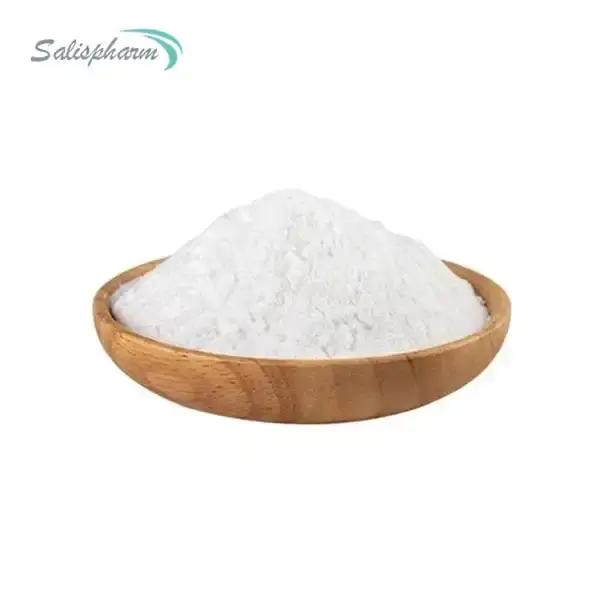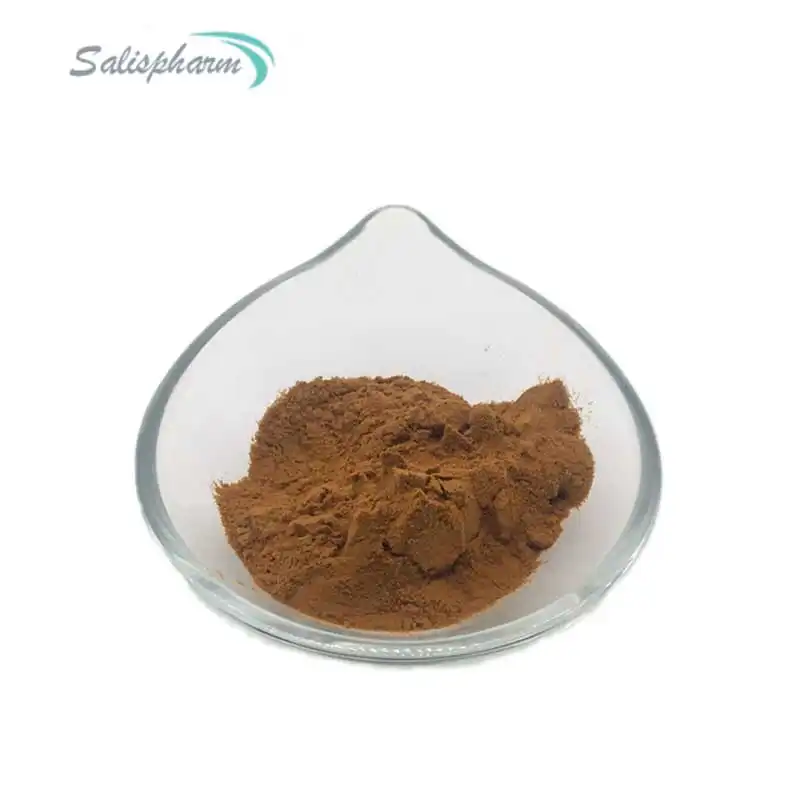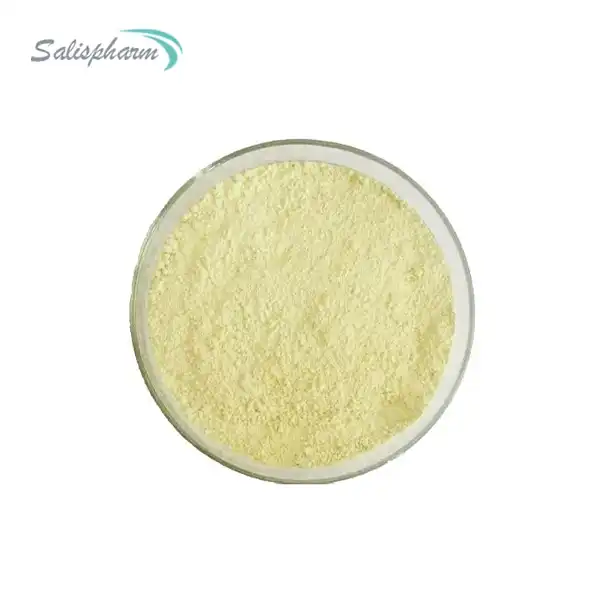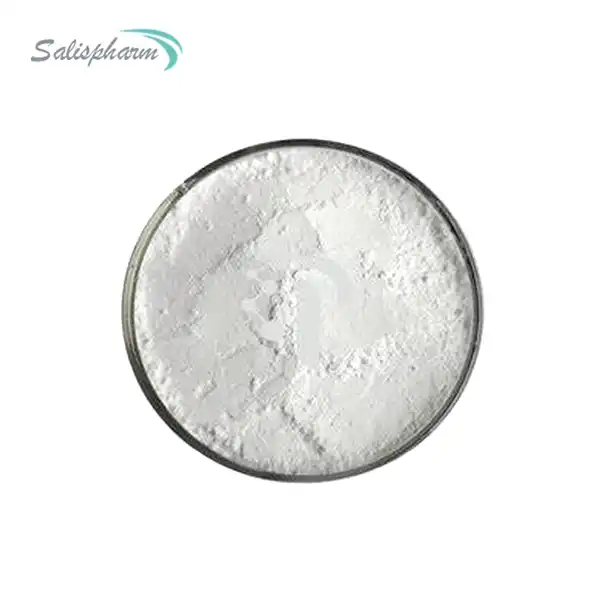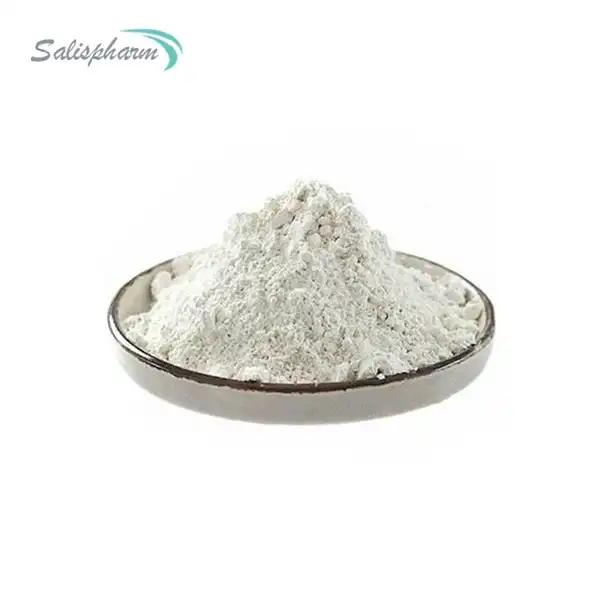Aspirin, a widely used over-the-counter medication, has been a go-to remedy for various ailments, from headaches and fever to pain relief. But have you ever wondered why this unassuming little pill can make you feel so much better? In this blog post, we'll delve into the science behind aspirin's efficacy and explore its potential benefits and risks, as well as safe usage guidelines.
What Are the Benefits of Pure Aspirin Powder?
Pure aspirin powder, or acetylsalicylic acid, is the active ingredient in aspirin tablets and has a range of therapeutic applications. One of its primary benefits is its ability to reduce inflammation, making it an effective pain reliever for conditions like arthritis, menstrual cramps, and muscle aches. Additionally, aspirin has been shown to lower the risk of heart attack and stroke by thinning the blood and preventing clot formation.
The anti-inflammatory properties of aspirin stem from its ability to inhibit the production of prostaglandins, which are compounds that promote inflammation, pain, and fever. By blocking the enzymes responsible for prostaglandin synthesis, aspirin reduces inflammation and alleviates associated symptoms.
Another advantage of pure aspirin powder is its versatility. It can be used as a fever reducer, effectively lowering body temperature during illnesses like the flu or a cold. Aspirin achieves this by altering the body's temperature-regulating mechanisms in the hypothalamus, the part of the brain that acts as a thermostat.
Furthermore, aspirin has been studied for its potential role in cancer prevention, particularly colorectal cancer, although more research is needed in this area. Some studies suggest that the anti-inflammatory effects of aspirin may help prevent the development and growth of certain types of cancers, but the evidence is not yet conclusive.
Can Pure Aspirin Powder Cause Side Effects?
While aspirin is generally safe when taken as directed, it's essential to be aware of potential side effects, especially when using pure aspirin powder. One of the most common side effects is stomach irritation, which can lead to nausea, vomiting, and even ulcers or bleeding in some cases. This risk is heightened when taking aspirin on an empty stomach or in high doses.
Aspirin's ability to inhibit prostaglandin production, while beneficial for reducing inflammation and pain, can also disrupt the protective lining of the stomach. This can lead to irritation, erosion, and even ulceration of the stomach or intestinal lining, particularly with prolonged or high-dose use.
Additionally, aspirin can increase the risk of bleeding, particularly in individuals with bleeding disorders or those taking blood-thinning medications. This is because aspirin inhibits the aggregation of platelets, which are essential for blood clotting. While this effect can be beneficial in preventing heart attacks and strokes, it can also increase the risk of excessive bleeding in some individuals.
Aspirin may also interact with certain medications, such as blood thinners (e.g., warfarin), corticosteroids, and non-steroidal anti-inflammatory drugs (NSAIDs), increasing the risk of adverse effects. It's crucial to consult with a healthcare professional before taking aspirin if you have any underlying medical conditions or are currently taking other medications.
How to Take Pure Aspirin Powder Safely?
To ensure safe and effective use of pure aspirin powder, it's essential to follow proper dosage guidelines and precautions. Always read and follow the instructions on the product label or consult with a healthcare professional for personalized advice.
When taking pure aspirin powder, it's recommended to take it with food or a full glass of water to minimize stomach irritation. Additionally, it's crucial to avoid taking aspirin if you have an allergy to salicylates or have been advised against its use by a healthcare provider.
For adults, the typical dosage of pure aspirin powder for pain relief or fever reduction is 325 to 650 milligrams every 4 to 6 hours, not exceeding 4 grams (4,000 milligrams) per day. However, it's essential to consult with a healthcare professional for specific dosage recommendations based on your individual circumstances, as dosages may vary depending on the condition being treated and any other medications or medical conditions.
It's also important to note that aspirin should be used with caution in certain populations, such as children and adolescents (due to the risk of Reye's syndrome), pregnant women (as it may increase the risk of complications), and individuals with certain medical conditions like asthma, liver or kidney disease, or bleeding disorders.
In addition to following dosage guidelines, it's recommended to take aspirin for the shortest duration possible and to seek medical attention if symptoms persist or worsen. Prolonged or excessive use of aspirin can increase the risk of side effects and may be indicative of an underlying condition that requires medical evaluation.
Aspirin: A Remarkable Medication with a Complex History
The history of aspirin is as fascinating as its pharmacological properties. Derived from the bark of the willow tree, which has been used for its pain-relieving properties since ancient times, aspirin was first synthesized in a pure form in 1853 by a French chemist named Charles Frédéric Gerhardt. However, it wasn't until 1899 that Felix Hoffmann, a chemist at the German company Bayer, successfully acetylated salicylic acid, creating a more stable and less irritating form of the compound – acetylsalicylic acid, or aspirin as we know it today.
Bayer initially marketed aspirin as a pain reliever and fever reducer, but it wasn't until the 1950s and 1960s that its potential for preventing heart attacks and strokes was recognized. This discovery was a game-changer in the field of cardiovascular medicine and solidified aspirin's status as a versatile and life-saving medication.
Today, aspirin remains one of the most widely used and studied drugs in the world. Its ability to provide relief from a wide range of conditions, coupled with its relatively low cost and availability, has made it a staple in medicine cabinets around the globe.
In conclusion, aspirin is a remarkable medication that can provide relief from a variety of ailments, but it's crucial to understand its potential benefits, risks, and proper usage guidelines. By taking pure aspirin powder safely and responsibly, you can harness its therapeutic properties while minimizing the risk of adverse effects. However, it's always advisable to consult with a healthcare professional for personalized guidance and to ensure that aspirin is the appropriate treatment option for your specific condition.
If you are also interested in this product and want to know more product details, or want to know about other related products, please feel free to contact sasha_slsbio@aliyun.com.
References:
1. Aspirin Use to Treat: Heart Disease and Stroke (American Heart Association)
2. Aspirin and Heart Disease (Harvard Medical School)
3. Aspirin and Stomach Bleeding (National Institute of Diabetes and Digestive and Kidney Diseases)
4. Aspirin and Cancer Risk (National Cancer Institute)
5. Aspirin: Mechanism of Action, Indications and Side Effects (StatPearls Publishing)
6. Aspirin: Uses, Dosage, and Side Effects (Drugs.com)
7. Aspirin Safety and Precautions (Mayo Clinic)
8. Aspirin Therapy (Medscape)
9. Aspirin: An Old Drug with Novel Mechanisms of Action (Journal of Clinical Investigation)
10. Aspirin: A Review of Its Pharmacology and Therapeutic Applications (Journal of Clinical Pharmacology)
11. The History of Aspirin (Bayer AG)
12. Aspirin: From Ancient Remedy to Modern Medicine (Journal of the American Medical Association)
13. Pharmacology and Toxicology of Aspirin (Springer)
14. Aspirin: A Historical and Contemporary Review (Circulation)
15. The Discovery of Aspirin and Its Therapeutic Applications (Angewandte Chemie International Edition)

